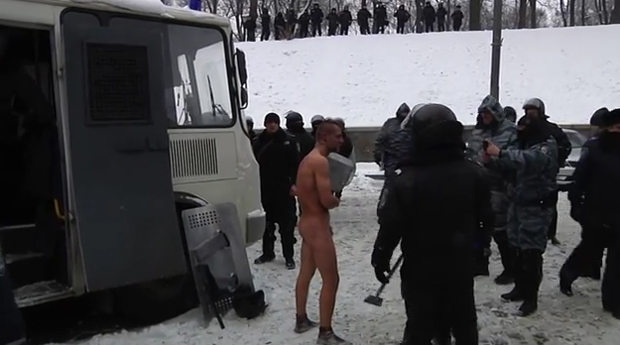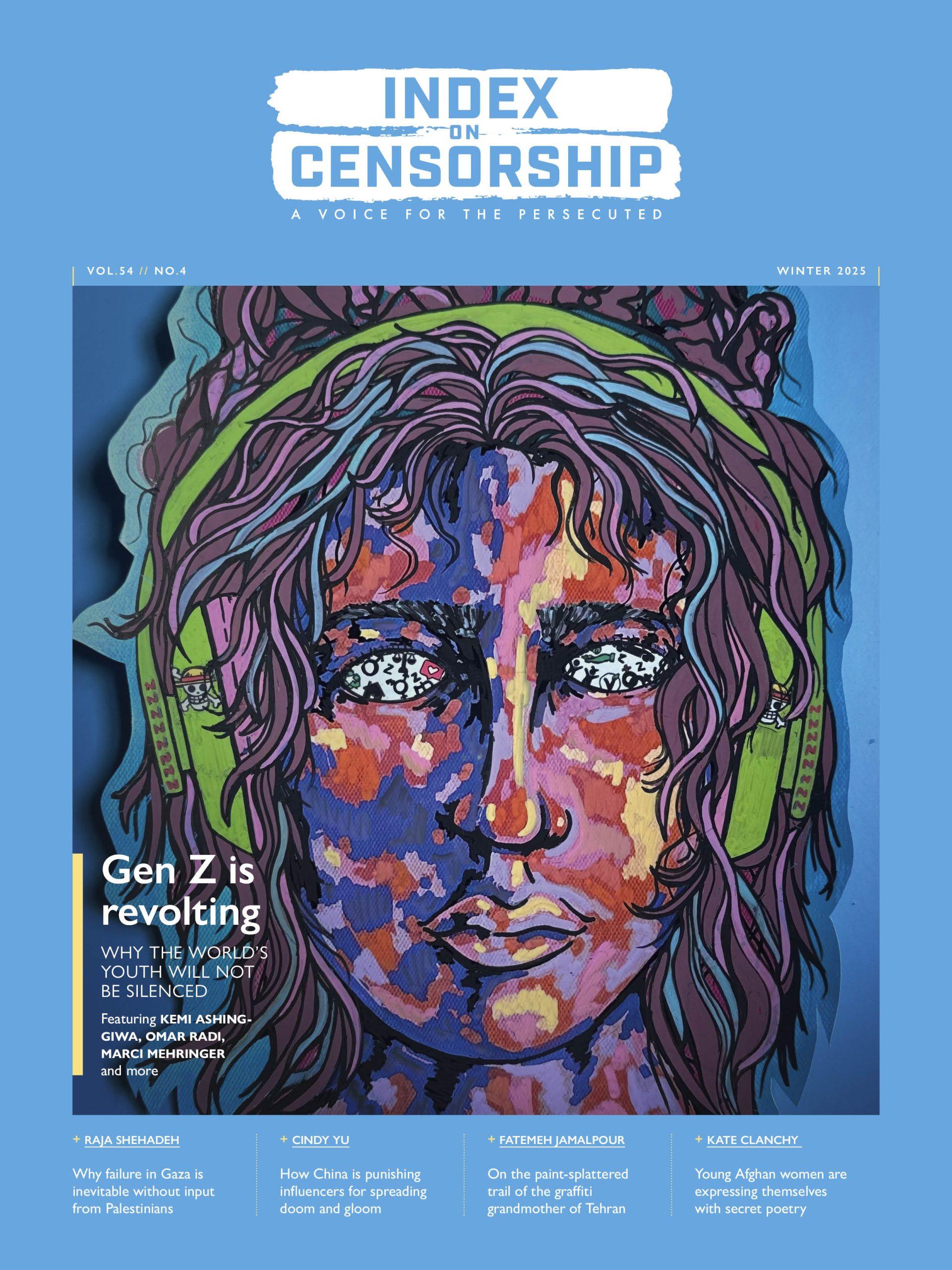This video from YouTube shows a protester abused by police in Kiev.
As the conflict in Kiev continues to unfold, Ukrainian civil society activists tell Index negotiations and urgent reaction of the international community are vital to resolve the crisis.
Severe clashes between the riot police and protesters have led to at least three deaths; two of the protesters were shot with firearms on Wednesday. One more activist was found dead after unidentified people kidnapped and tortured him. Hundreds of protesters were injured as the police used flash grenades and other weapon (along with firearms, as it appeared) against the Euromaidan demonstrators.
The Institute of Mass Information reports at least 42 journalists were injured by the actions of the police.
Index joined 25 other organisations, united in the Civic Solidarity Platform, a coalition of human rights groups from Europe, Asia and North America, in a call for an immediate end to violence and dialogue between the opposing sides, to reach a peaceful resolution to an “acute human dimension crisis in Ukraine.”
“Developments in the situation in Ukraine are critical for the whole post-Soviet history and for the issue of human rights in the OSCE countries. This is why stabilisation of the situation in Ukraine – not in an authoritarian, but in a democratic sense – is crucial for the whole OSCE region,” the joint statement reads.
The protest in Ukraine started last November as it became clear the authorities refused to sign an Association Agreement with the EU.
“Now the protests are not about the European integration. It is all about the right to live in a free country, the right to speak out, to unite and defend our freedoms,” says Maryna Tsapok, an expert from the UMDPL Association, an NGO that monitors the activities of law enforcement.
She refers to a new law adopted in Ukraine on 16 January 2014 that seriously restricts freedoms of expression, assembly and association in the country.
“The authorities say this law and the actions of the police are aimed at restoring of the rule of law. But you cannot restore the rule of law by breaking the Constitution and international treaties. The escalation of the conflict should be stopped immediately by negotiations. But while the government is talking with the opposition, the police continue to use severe force against people in the streets, and the death toll is counting.”
“The authorities of the country have crossed the line,” says Olexandra Matviychuk, the Chair of the Centre for Civic Liberties. “It is almost impossible to predict the development of the situation. But what’s clear is that real and immediate measures from the international community are needed.”
“Serious escalation of the situation in Ukraine is the direct effect of the fact that from the very beginning of the protest movement the government has not taken any single step to build a comprise, but instead made a whole range of steps to suppress the protestors. They include attempts to forcefully disperse peaceful protestors and then to persecute them, violence against journalists, threatening of activists in the regions and, finally, adoption of the draconian legislation curtailing human rights and freedoms in the country,” says Antonina Cherevko, a media lawyer.
She adds: “The Ukrainian issue today can potentially create security problems not only for the country itself, but for the whole region. In this situation, a strong reaction and action from the established democracies is highly needed.”
This article was published on 23 January 2014 at indexoncensorship.org





